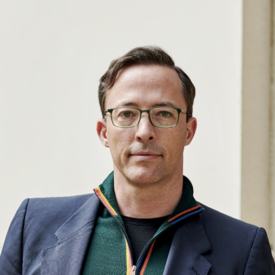Rob is a Founding Partner at Kiko Ventures. Together with the two other Founding Partners, he sits on the investment committee and sets Kiko’s investment strategy. He also works hands-on with founders, supporting them to help unlock advances in clean technology. Rob has been working in cleantech since 2000, when he started his career as a hydrogen and fuel cell scientist.
My Dad got me in to climate change.
My Dad didn’t go to university, but he is one of the smartest people I know. When I was 12, he quit his corporate job to become a clean energy campaigner. That was pretty unusual in the 90s. He went on to set up the original fuel cell industry association for Europe, and I have been thinking about clean energy and thanking him for the last 25 years. The two of us are banned from indulging in ‘fuel cell chat’ at family dinners though.
It’s not possible.
Is an exciting phrase for me. I remember sitting through a 90-minute briefing at NREL where a group of experienced people told me that it was not possible for solar to get below $1/W. At a more recent meeting a well-known Professor explained why green hydrogen at $2/kg was not possible either. My life changed the day I met Ceres Power founder Brian Steele thinking that it’s not possible to make a dense ceria electrolyte on a steel substrate. It turns out that it was possible, if you were imaginative, hard-working, and a bit lucky.
Why was this hard?
Is a question I love asking. We have a privileged role scanning others’ ingenuity, looking for the ideas where we can help. The harder the problem, the greater the need for invention and the more potential value. The moment you understand the thing the person has done to solve that problem is my favourite bit of the job.
I am a materials scientist.
Working on climate has been my career; materials science was the thing I was good at. I love the applied nature of the discipline and its visual nature. The ability to change what something does by changing its structure is a cause-effect delight for me. I used to go into the electron microscopy labs on weekends and look at structures for fun. I didn’t get out much.
IP is important.
I set up a business based on a materials characterisation technique that my supervisor and I invented during my PhD at Cambridge. We thought that getting the idea patented would be a ‘hassle’ so didn’t bother. To start with, I made some money via a simple service business model. Then my customers figured out the technique, and the business went away overnight. It wasn’t the end of the world, but I have been working on ensuring that good ideas get protected ever since.
I love being part of a community.
One of the rewards of working in cleantech is the joy of discovering in others the same motivation to work for a better future. Over the years I have set up dinners and drinks meet-ups, attended others’ groups and conferences and felt the satisfaction of being part of an ever-growing web of good people working on this climate mission. There is a great ‘alumni’ community around the Carbon Trust, where I worked in the late 2000s, and one of the things that excites me about Kiko is the opportunity to help grow a community focussed on climate technology innovation.
